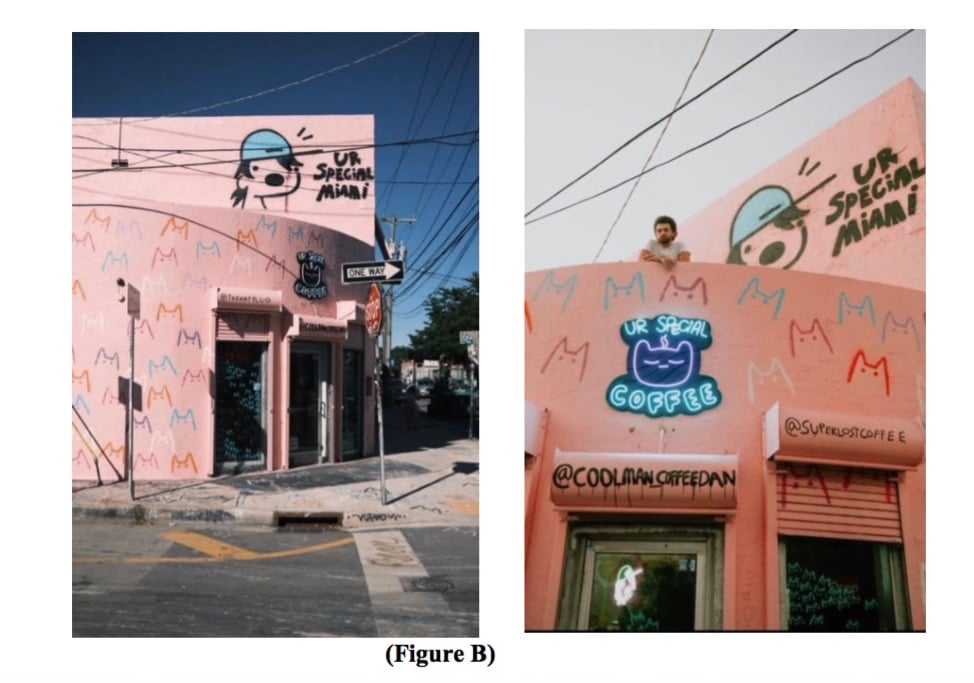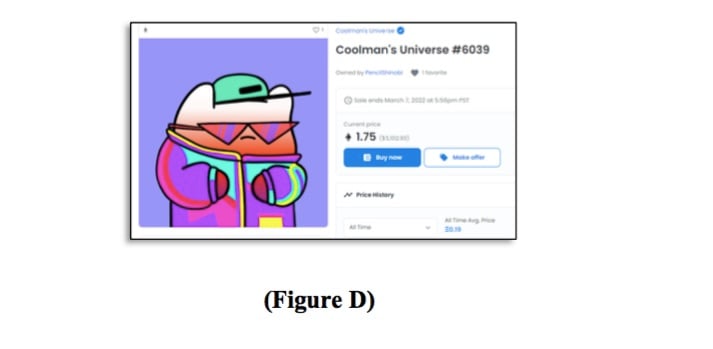Law & Politics
NFT Artist Scores Big Win in Multimillion Dollar Contract Dispute Over a Blank Space
The plaintiff's contract with artist Coolman Coffeedan contained a "fatal" error, the court said.

The plaintiff's contract with artist Coolman Coffeedan contained a "fatal" error, the court said.

Eileen Kinsella

It was a high price to pay for leaving a blank space.
A judge in Florida has come down squarely on the side of an artist in a potentially high-stakes lawsuit over revenue and profit-sharing related to a series of non-fungible tokens that the artist created. The reason? No contract start date was specified.
Danny Casale is a 27-year-old artist who rose to fame for his quirky but crudely-drawn animations of animals, such as the wildly popular “Snakes Have Legs.”
Casale, who self-deprecatingly calls himself a “bad animator” and goes by the Instagram handle “Coolman Coffeedan” was sued for breach of contract among other claims in March 2022 by DigiArt. DigiArt is a Florida LLC owned by parties including Florida art dealer Marcel Katz, who is said to specialize in works by artists such as Jean-Michel Basquiat and Warhol. Another DigiArt stakeholder is restaurant mogul Robert Earl, owner of Planet Hollywood, Buca di Beppo, Bertucci’s, Brio Italian Grille, and Bravo Italian Kitchen.
DigiArt alleged that in May 2021, it entered into an agreement with Casale “which expressly gave DigiArt the exclusive [sic] right to market and offer for sale all non-fusible tokens created by Casale during the term of the agreement which expires on May 2, 2022.” DigiArt claims the agreement was to split net sale proceeds of any of Casale’s NFTs on a 50-50 basis.

Katz took steps to promote Casale’s digital and physical art and raise his public profile, as well as expose the artist to an international art collector base, according to the complaint. And DigiART did “that and much more, spending considerable resources (time and money) over the course of several months, to feature Casale in prominent physical and digital exhibitions and otherwise heavily promote his projects.”
For example, Katz launched Casale’s official debut at Miami Art Week pegged to Art Basel Miami in December 2021, including organizing a pop-up exhibition and experience to feature Casale’s work, called “Ur Special Coffee” at The Bagel Club, located in the Design District of Miami. The pop-up store sold what was billed as “the world’s most expensive cup of coffee, at $1,000 per paper cup, with each cup featuring a one-of-a-kind original artwork by Casale. This event garnered substantial press from a wide variety of sources,” according to the complaint.
However, DigiArt alleged that Casale decided to “wholly ignore his contractual obligations” and proceeded to market and offer 10,000 NFTs for sale online “in breach of his obligations to DigiArt.” The suit says Casale’s collection marketed under the name “Coolman’s Universe” had a trading volume of over ETH 18,000 or $50 million on online platform OpenSea.
No specific monetary damages were identified in the complaint, but the claims included breach of contract and misrepresentation, among others.
Judge Wendy Berger shot down DigiArt’s claims in a September 15 ruling handed down in U.S. District Court for the middle district of Florida, Orlando division. She ruled in favor of Casale’s motion for summary judgment, dismissing the case.
The definitive ruling came down to a surprisingly routine detail—the lack of a date on the initial signed contract. According to Judge Berger’s 14-page ruling, after discussions regarding sale proceeds and royalties from secondary-market sales, a DigiArt representative emailed Casale a draft agreement.
“The draft contained several blanks, including the effective date, the name of the artist, and the allocation of net sale proceeds…in the body of the e-mail, [DigiArt’s] representative stated that the profit split would be ’50/50’ ‘on initial NFT drops,'” with all secondary-market royalties going only to Casale. “The e- mail did not contain an effective date for the agreement,” and Casale signed and returned the draft agreement, still containing blanks, on April 30, 2021.
On May 3, 2021, Katz forwarded the signed agreement to other individuals involved in DigiART, according to the ruling. “When he sent the document, the blank for effective date had been filled with “May 2nd, 2021.”
In March 2021, Casale began creating and selling NFTs, eventually culminating in his Coolman’s Universe NFT Project. Between the purported effective date of the agreement and February 2022, Katz and other DigiART employees were aware of the NFT project, according to the complaint.
Casale said Katz did not attempt to enforce the agreement, inform him that he was in breach of the agreement, or otherwise acknowledge any contractual relationship between the parties. “DigiART admits that it did not inform [Casale] that his release would be a violation of any agreement until months after it became aware of the Coolman NFT Project,” according to the ruling.
In the ruling, Berger cited a precedent that did not mince words: “As a general rule, presence of blanks in a contract is fatal to the enforcement.”
“This lawsuit never should have been filed,” Jordan Susman, an attorney for Casale, told Artnet News via email. “DigiART had no agreement with Danny and had no involvement with his successful NFT collection. Instead of being able to celebrate his accomplishment, Danny has spent the past year fighting a lawsuit and watching DigiART take credit for his work. The court’s ruling vindicates Danny as both a businessman and as an artist.”
Attorneys for DigiArt did not respond to request for comment.
More Trending Stories: